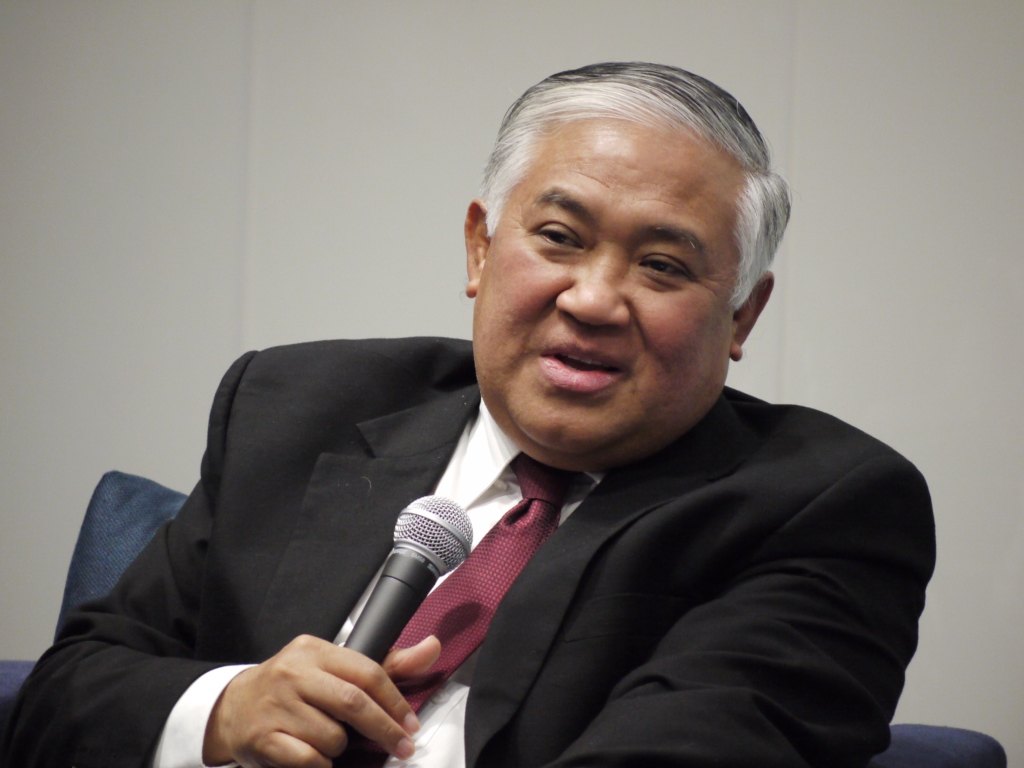Interview summary:
Q: Islam is the second largest religion in the world, but the recent activities of Islam extremists seem to be spreading the wrong impression about the religion.
A: Islam according to the Holy Koran is a 'religion of peace.' The very mission of Prophet Mohamed is to spread peace to the universe. Therefore the existence of ISIS and other radical groups within the Muslim community in the world is not only a challenge to the world and human civilization but in particular a challenge to us, to the Muslims and the Muslim world. We need to work together to cut the root cause of this radicalisms and extremism in the name of religion, and fulfill our responsibility as a Muslim organization to safeguard the great majority of Muslims.
Q: The Japan-India relationship is viewed as the fastest-growing bilateral relationship in the world, isn't it
A: The partnership between Japan and India is Asia's transformative entente. It's a relationship that can transform Asia geopolitically because there are three important powers in Asia: Japan, China and India. If two of these powers come together like Japan and India, they can make quite a bit of difference in the overall situation and ensure peace and stability. So, the Japan-India partnership can likely be a contributor to Asian peace and security. In the coming years, we will likely see a lot more cooperation happening between Japan and India in the strategic realm. Both countries already hold an annual summit meeting between their prime ministers.
Q: If there is a need to reform Islam, how do you think it should be reformed?
A: Islam is a reformist religion and also a peaceful religion with an element of modernity to fit the current and future situations of the world. There are non-religious (political) motives behind the radical groups. We need to work together with other parties and communities, be it government or element of civil society organization, to mainstream peaceful, moderate and modern Islam in order to challenge the threat of radical Islamists.
Q: As a moderate Muslim, you are stressing the need to respect pluralism.
A: Islam, according to the Holy Koran, recognizes pluralism and has a view of inclusiveness, i.e. how to include other people. In many countries in the world, we live together with other religious followers, non-believers, and with other nationalities, ethnic groups, etc. We need to extend the orientation of peaceful coexistence and co-habitation between different faiths.
Q: What do you plan to share with the audience in your seminar titled "Challenges and Future Perspectives of Islam: Views from Indonesia"?
A: I would like to introduce Islam in Indonesia, or Indonesian Islam. It came to our archipelago centuries ago by peaceful means, and is different from Islam in other parts of the world, especially the Middle East. Indonesian Islam really manifests the very nature of Islam, which is peaceful Islam. There are challenges of the radical groups and fundamentalists especially in the aftermath of the September 11 event. We are also victims of terrorism, such as Bali bombing. That's why, since then, we have begun to mainstream peaceful Islam, which we call 'Moderate Islam.' Another point we would like to share with the audience is about Indonesia - Japan relationship. The two countries are brothers to each other. We need the bilateral relationship to be strengthened in the future in many fields. We would like to share this information and receive feedback from the audience.
